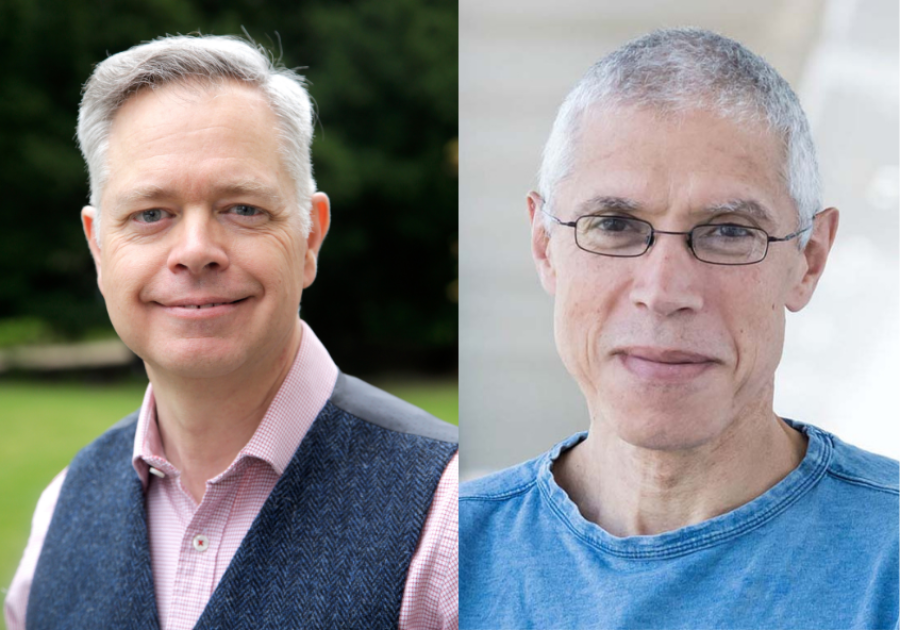LSHTM researchers in eye health and parasitology elected as Fellows of the Academy of Medical Sciences
11 May 2022 London School of Hygiene & Tropical Medicine London School of Hygiene & Tropical Medicine https://lshtm.ac.uk/themes/custom/lshtm/images/lshtm-logo-black.png
The new Fellows have been recognised for their outstanding contribution to the biomedical and health sciences over the course of their careers, and their ability to generate new knowledge and improve the health of people worldwide.
Professor Matthew Burton is the Director of the International Centre for Eye Health (ICEH) at the London School of Hygiene & Tropical Medicine.
Matthew is an ophthalmologist who began working in international eye health in 2000, joining ICEH at LSHTM that year and becoming Director in 2020. The Centre’s mission is to improve eye health worldwide through excellence in research, education and capacity strengthening with an emphasis on global networks.
He leads a group of more than 60 research clinicians, epidemiologists, laboratory scientists, research fellows and professional support staff, working closely with academic partners globally. His main research focus is blinding eye infection (trachoma and corneal infection). Additionally, he works on ocular surface squamous neoplasia, glaucoma, diabetic retinopathy, eye disease surveys and technology development. Clinical trials form a central component of the groups’ work.
Matthew is the co-chair of the Lancet Global Health Commission on Global Eye Health. Through new and existing research, the Commission analysed the current state and future direction of eye health globally. The report was the result of collaboration between 73 academics, national programme leaders and practitioners from 25 countries, and highlighted the link between eye health and furthering the Sustainable Development Goals.
In 2014 he became the Director of the Commonwealth Eye Health Consortium, which supports public health and research capacity development, sub-specialist ophthalmology training, health systems strengthening and technology development for eye health professionals. The global network formed through the Consortium continues to benefit eye health internationally.
Professor Burton said: “I am deeply honoured to have been elected as a fellow of the Academy of Medical Sciences. It has been a great privilege and pleasure to have been part of the International Centre for Eye Health at LSHTM for more than 20 years, doing a job that I love.”
“The Centre strives to contribute to improving eye health worldwide. To have had the opportunity to work with so many partners internationally and see eye health starting to become prioritised in public health is a great joy for me. I would like to acknowledge and thank my wonderful colleagues and our funders, especially the Wellcome Trust.”
Professor Mike Blackman is Professor of Molecular Parasitology at LSHTM, and Principal Group Leader at the Francis Crick Institute, where he leads the Malaria Biochemistry Laboratory.
Mike has a long-standing research interest in the molecular mechanisms underlying invasion of red blood cells by the malaria parasite Plasmodium falciparum – which is best known for causing malaria – as well as how the parasite escapes its host cell. This work has led to a detailed understanding of how parasites are able to escape red blood cells and spread throughout the body, with a focus on how a signalling pathway controlled by enzymes regulates the breakdown and rupture of the red blood cell membrane.
His current work is largely focused on the identification of drug-like compounds that inhibit these enzymes and that have the potential to lead to new types of antimalarial treatments.
Professor Blackman said: “I am honoured and delighted to have been elected this year to the Academy. I have been incredibly fortunate to have worked for over 30 years in malaria research with numerous inspiring and dedicated colleagues at LSHTM, the Francis Crick Institute, the MRC National Institute for Medical Research, and the MRC Unit The Gambia at LSHTM.
“Together with our many fabulous collaborators, it has been an exciting and humbling experience to have been able to contribute to our understanding of the biology of the malaria parasite, which causes such huge suffering across the globe. I would like to thank our funders, especially the MRC and the Wellcome Trust, without whose support this work would not have been possible.”
Professor Dame Anne Johnson, President of the Academy of Medical Sciences, said: “It gives me great pleasure to welcome these 60 experts to the Fellowship to help to address the major health challenges facing society.
“Each of the new Fellows has made important contributions to the health of our society, with a breadth of expertise ranging from the physical and mental health of young people to parasitic diseases and computational biology.
“The diversity of biomedical and health expertise within our Fellowship is a formidable asset that in the past year has informed our work on critical issues such as tackling the COVID-19 pandemic, understanding the health impacts of climate change, addressing health inequalities, and making the case for funding science. The new Fellows of 2022 will be critical to helping us deliver our ambitious 10-year strategy that we will launch later this year.”
In 2021, Professor Beate Kampmann was elected as a Fellow of the Academy of Medical Sciences, along with Professors Pontiano Kaleebu and Helen Weiss in 2020, Professor John Edmunds and Liz Corbett in 2018, and Professor Joy Lawn and now Director of LSTHM Professor Liam Smeeth in 2016.
Our postgraduate taught courses provide health practitioners, clinicians, policy-makers, scientists and recent graduates with a world-class qualification in public and global health.
If you are coming to LSHTM to study a distance learning programme (PG Cert, PG Dip, MSc or individual modules) starting in 2024, you may be eligible for a 5% discount on your tuition fees.
These fee reduction schemes are available for a limited time only.